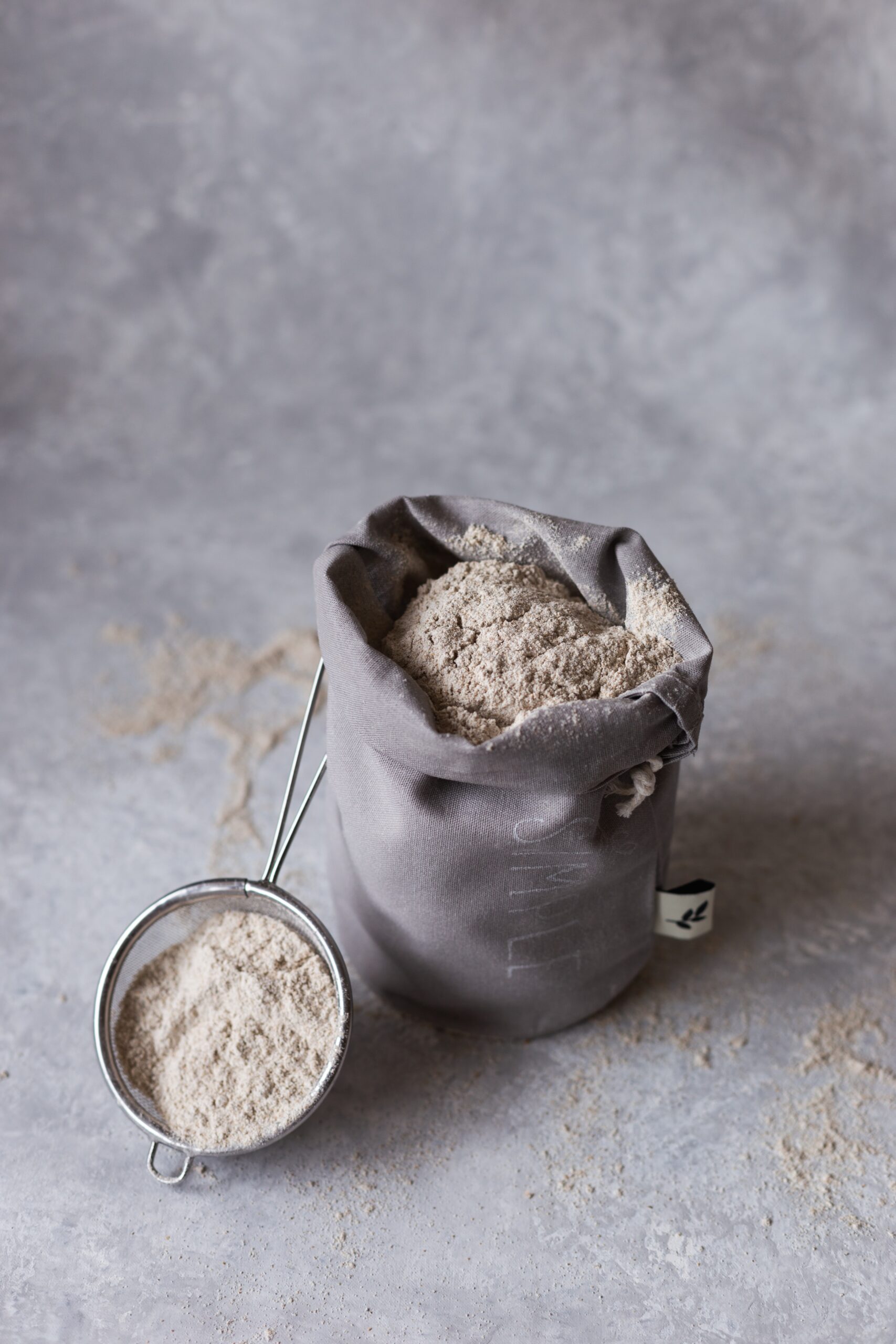When it comes to baking, many people fall under the impression that without some basic ingredients, your recipe can’t come out just as good. For regular flour, this seems like a huge roadblock, as most baking recipes seem to be etched in their use alone. However, you can still switch it with almond flour if the need be. Plus, sometimes, certain situations may call for you to consider the latter an alternative.
Why use almond flour in place of regular flour?
Regular flour or all-purpose flour is a combination of hard and soft wheat and is the most popular option for almost all baking recipes. However, these two key ingredients make it a high-gluten food item, and if you wish to cut down on this, using it becomes a no-no. This is where almond flour comes into play. Because it’s made purely from raw almonds, it’s higher in fat, proteins, and fiber, making it an ideal healthy substitute for all-purpose flour. Plus, it also adds a nutty flavor to baked goods.
Almond flour tastes great and works for a wide range of baked goods. If you’re making cakes, pancakes, cookies, and many other baked dishes, you can switch regular flour for almond flour if you need to. But because of its heavyweight properties and high moisture absorption rate, almond flour isn’t the best substitute for regular flour in bread recipes. This is especially evident if you’re baking yeast bread.
Substituting almond flour for regular flour
When substituting almond flour for regular flour, you need to consider a few factors. First, note that almond flour absorbs more moisture than regular flour. Also, note that using almond flour in place of all-purpose flour means you’ll have to add more eggs to the dough or batter. This is because almond flour doesn’t bind ingredients quite as strong as regular flour.
One way to properly substitute almond flour for regular flour is to substitute equally, and then slightly increase the quantity of rising agent in the recipe. This way, the dough or batter easily accommodates the heavy texture of almond flour in the recipe. Another way to make it work is to increase the liquid quantities of the baking recipe, to make up for the high moisture-absorbing nature of almond flour. Also, you can add more almond flour to the recipe, especially if the baked goods come out best when the dough is more robust.
Other substitutes for regular flour
Two reasons make you consider a substitute for regular flour; either your supply ran out in the middle of a recipe, or you wish to cut down or completely avoid gluten. In such cases, and when you can’t find almond flour to replace all-purpose flour, you can try these other alternatives instead.
Bread flour
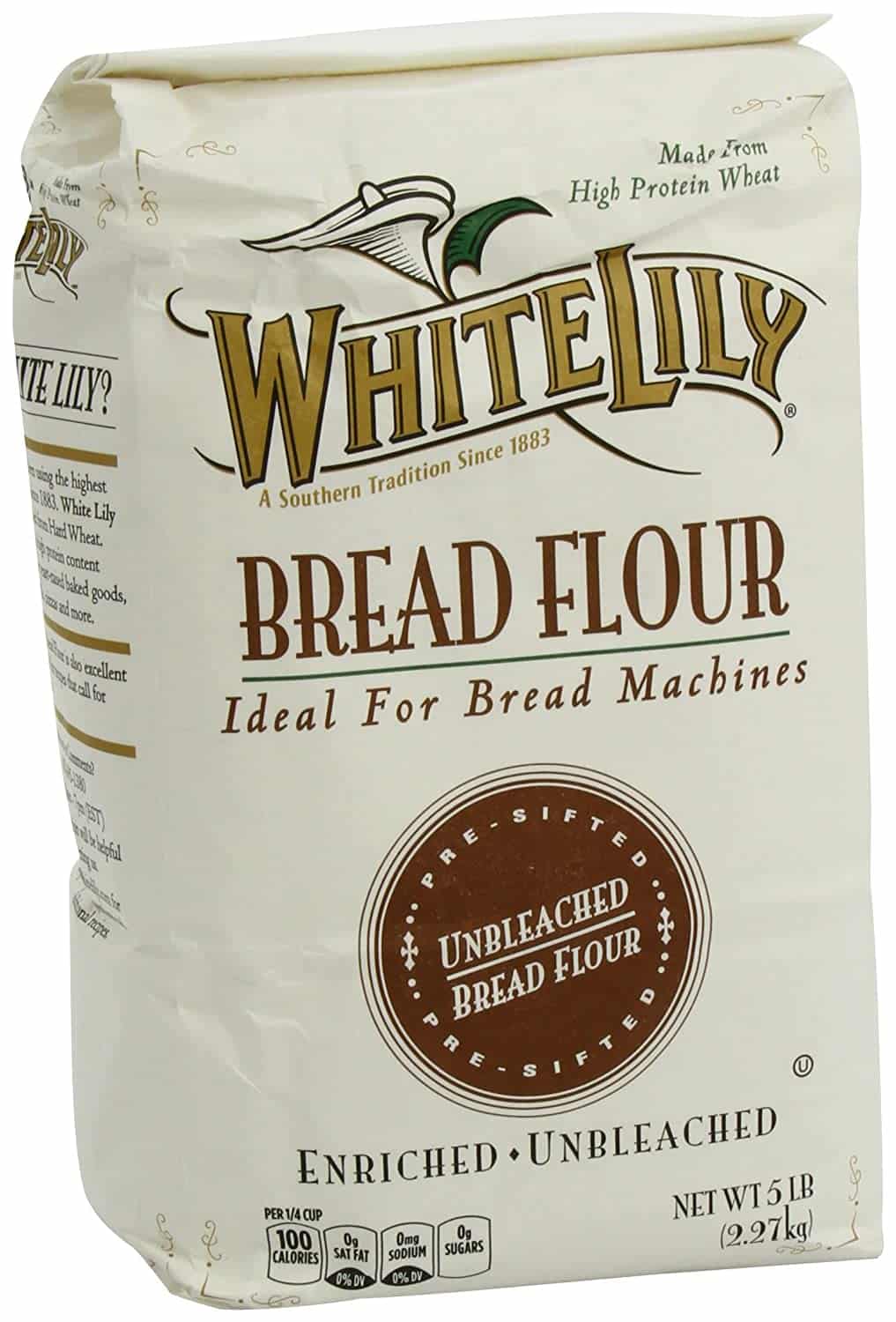
Bread flour is the closest thing to substitute for regular flour if you’ve run out of almond flour and don’t mind the gluten content. And though it’s also made from wheat, it has a higher protein and gluten content, which is also why it’s also called high protein or high gluten flour. Bread flour is a good substitute for almond flour if you’re making chewy baked goods like cookies and bread. And it can be used in equal ratios, or if you wish to reduce the chewiness, half-to-one ratio. Bread flour also works for cakes and pancakes, but for this, you need to slightly reduce the quantities of the other ingredients.
Buckwheat flour
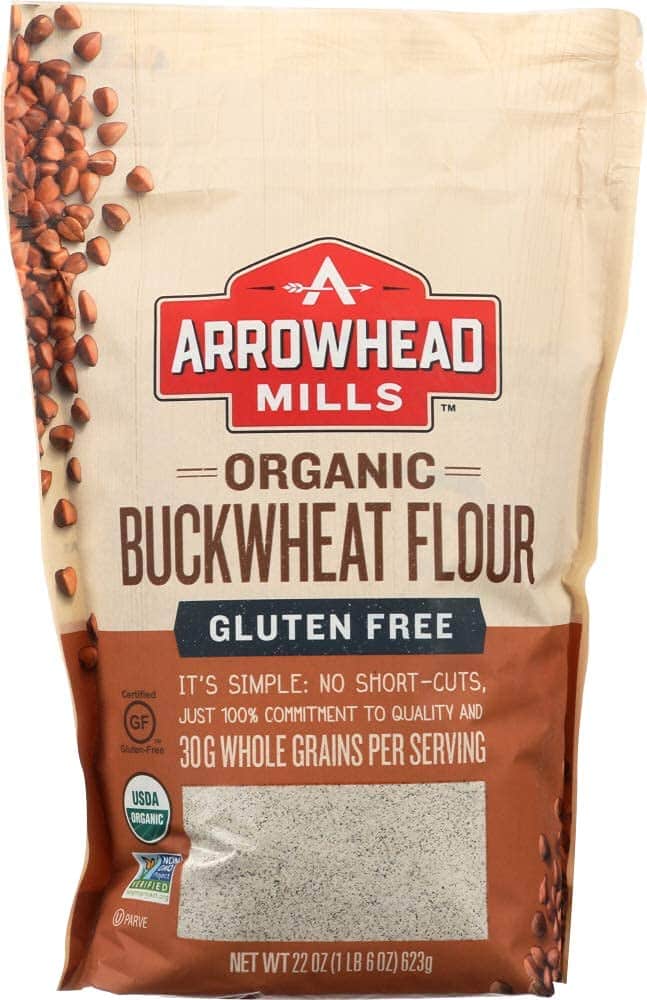
For gluten-free diets, buckwheat flour makes an excellent alternative to all-purpose flour. Though its name implies it’s derived from wheat, buckwheat is a ‘pseudocereal’, i.e., a plant that produces seeds consumed like grains. Buckwheat flour is rich in vitamins, fiber, and proteins, and can be swapped for regular flour in equal ratios, but the texture tends to be chalky when used in large quantities. But if you have a batch of almond flour that you feel wouldn’t be enough for your recipe, the best way to use it is to combine half parts of it with that of buckwheat flour to replace one cup of regular flour.
Whole wheat flour
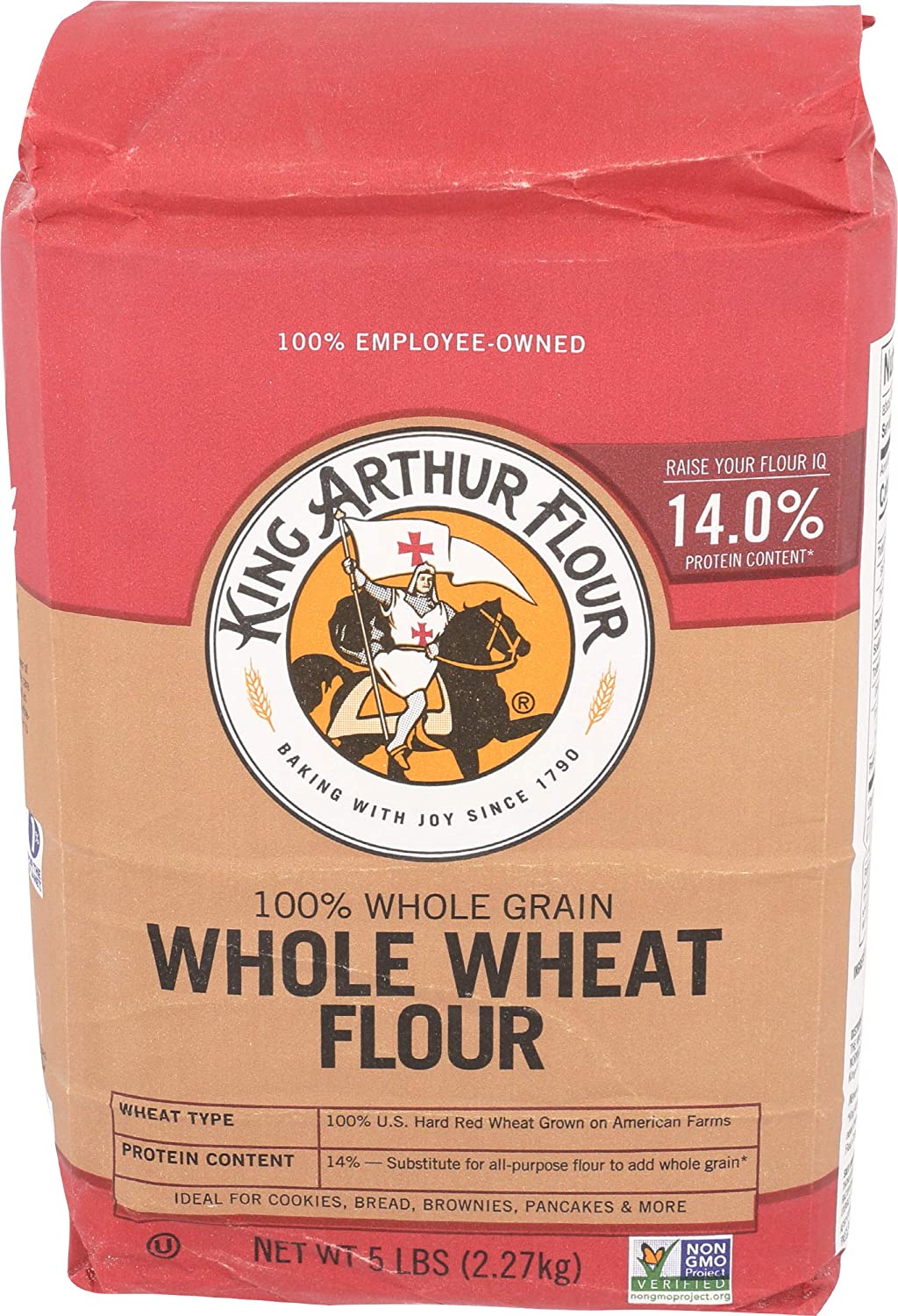
If you have a batch of whole wheat flour in your pantry, you can use it in place of regular flour. But note that it contains gluten, and is denser, which means your baked goods would come out drier if you use it alone or in equal quantities. The best way to make it work would be to mix it at half-and-half ratios with cake flour to substitute for one cup of regular flour. This works for muffins and quick pieces of bread, but take to mind that whole wheat flour isn’t a great substitute for all-purpose flour when making regular bread or cake.
Coconut flour
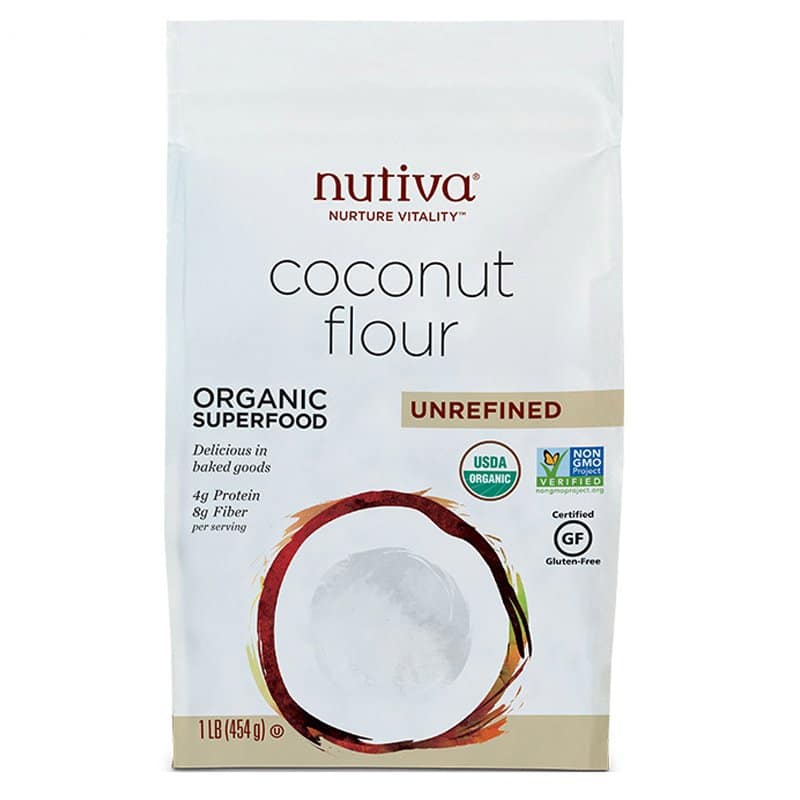
Coconut flour is perfect for gluten-free diets and is a great alternative to all-purpose flour in keto and paleo enthusiasts. Not only does it give you a slight, yet delicious taste of coconut in your baked goods, but also contains lower carbs and high protein. But coconut flour is more absorbent than all-purpose flour, and when used alone, you’d end up with denser, drier products if substituted in equal ratios. To avoid this, combine at half-and-half ratios with other flours or use at a half ratio to regular flour. Also, you’ll need to add more liquid and fat to the batter or dough, to compensate for its high moisture absorbance.
Frequently asked questions (FAQs)
How does almond flour affect baking?
Almond flour adds flavor and texture to baked goods, which is why it can be used in pie crusts, pancakes, loaves of bread, cookies, and cookies. It’s also commonly used in meatballs, as bread crumbs would, and for coating foods like chicken and fish.
Does almond flour get crispy?
Almond flour tends to make baked goods tenderer, with a cake-like texture instead of crispy. This is due to its high-fat content, which adds extra moisture to the baked goods.
Is almond flour good for weight loss?
Yes, it is. Unlike regular flour, almond flour has a low glycemic index and low carb level. This allows it to aid the reduction of sugar levels in the blood, and ultimately, leads to weight loss.
Conclusion
Whether you ran out of regular flour or you just wish to cut down on carbs and gluten, almond flour works as an ideal substitute. It comes with top qualities that make it the perfect alternative in many situations. And if you don’t have it either, it’s good to know that other substitutes for all-purpose flour are also available for you to explore.

